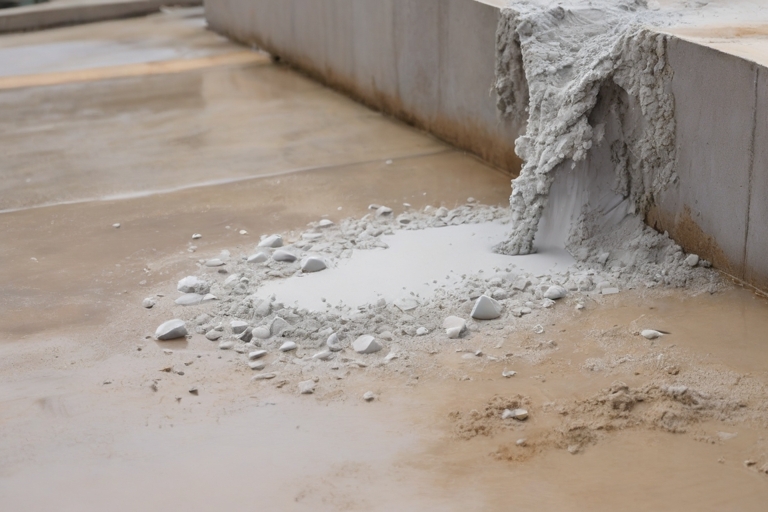Precipitated silica, a very fine and reactive additive, plays a significant role in improving the properties of concrete and mortar. By altering the microstructure of concrete, this material enhances its mechanical properties, durability, and workability.
Properties and Effects of Precipitated Silica on Concrete
- Increased Compressive and Tensile Strength: Silica fills the micropores in concrete, increasing its density and consequently improving its compressive and tensile strength.
- Reduced Permeability: Silica blocks the pores in concrete, reducing its permeability to water, chloride ions, and other harmful substances. This is particularly important for concrete exposed to corrosive environments.
- Increased Durability: Reduced permeability of concrete increases its durability against destructive environmental factors such as freeze-thaw cycles, wet-dry cycles, and sulfate attack.
- Reduced Shrinkage: Silica reduces concrete shrinkage, decreasing the risk of cracking due to drying.
- Improved Workability: Silica increases the workability of concrete and reduces the water-to-cement ratio, which in turn increases the strength and durability of concrete.
- Increased Abrasion Resistance: Silica increases the surface hardness of concrete, improving its abrasion resistance.
- Reduced Porosity: Silica fills the micropores in concrete, reducing its porosity, which is especially important for decorative and exposed concrete.
Mechanism of Action of Precipitated Silica
Precipitated silica forms chemical bonds with the calcium hydroxide released during cement hydration, forming silica gel. This silica gel fills the micropores in concrete, increasing its density and reducing porosity. Additionally, silica creates a physical barrier against the penetration of water and ions, protecting the concrete from deterioration.
Applications of Precipitated Silica in the Concrete Industry
- Structural Concrete: To increase the strength, durability, and reduce the permeability of structural concrete.
- Self-Compacting Concrete: To improve the workability and performance of self-compacting concrete.
- Decorative Concrete: To increase abrasion resistance and improve the appearance of decorative concrete.
- Sulfate-Resistant Concrete: To increase the resistance of concrete to sulfate attack.
- Freeze-Thaw Resistant Concrete: To increase the durability of concrete in cold climates.
Conclusion Precipitated silica, as a highly effective additive in the concrete industry, plays a significant role in improving the mechanical properties, durability, and workability of concrete. The use of precipitated silica in concrete production increases the service life of structures and reduces maintenance costs.
